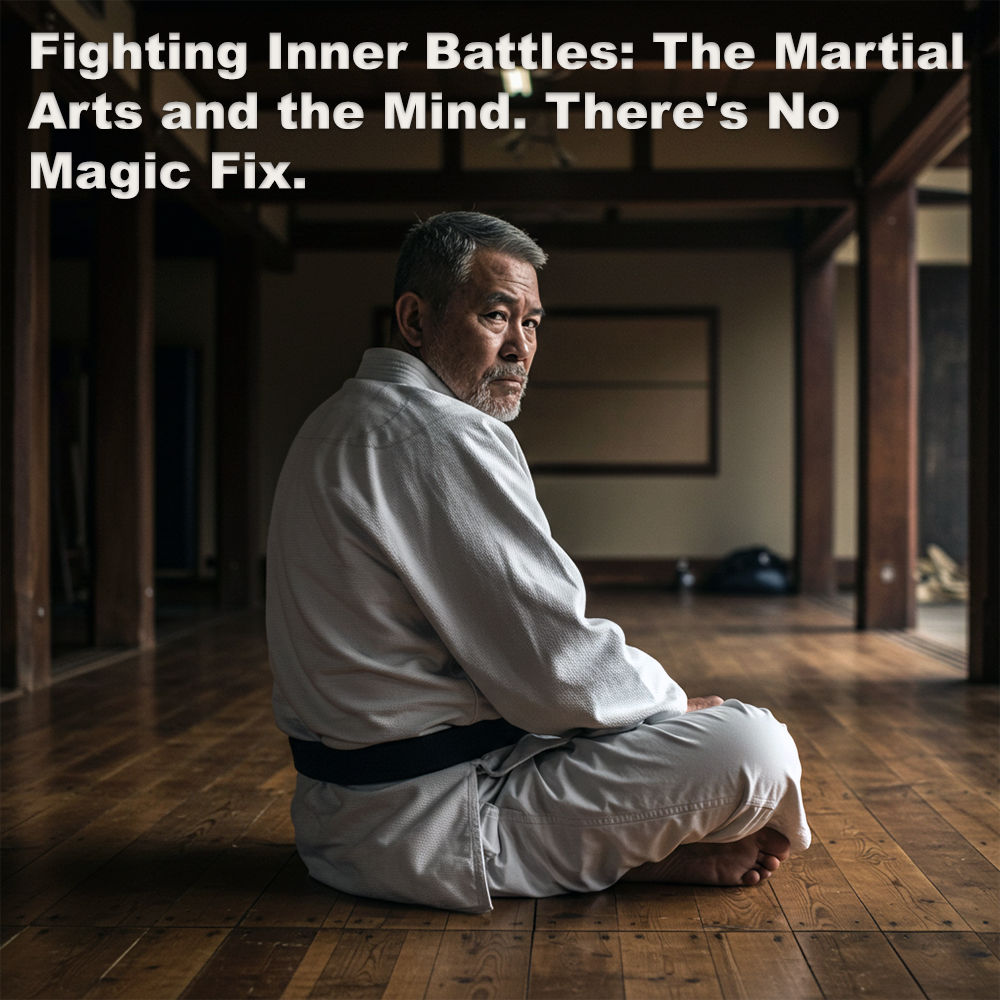
(Approx 2 minute 40 second read)
Many people believe that sport is played with the body and won with the mind. This being so, can the amount and intensity of training contribute just as much psychologically as physically?
.
Studies have shown that fitness training may help improve self-esteem, confidence, and body image. There are countless ways to stay active, but when we think of the benefits of the martial arts, we typically focus on the physical rather than the mental and emotional.
.
The term martial arts is somewhat contradictory. It is used to describe combat systems while also implying health and philosophical development.
.
Martial relates to fighting or war, while art refers to skill acquired through practice. By this definition, martial arts are any fighting skills developed through training.
.
Today, however, the martial arts are increasingly being recognized for their impact on mental health.
.
Have you ever considered training not just for self-defense or fitness but for emotional and psychological well-being?
.
Many claim that the martial arts help with stress reduction, self-confidence, discipline, focus, and emotional resilience. But does it?
.
Mental health is an essential part of overall well-being, yet it is often taken for granted. Engaging in any activity that takes your mind off problems, even briefly, can be beneficial.
.
The martial arts demand focus and purposeful movement, which serves as a powerful antidote to stress. When you’re practicing a kata, drilling a technique, or learning something new, your mind has no choice but to be fully present. This mindfulness – the ability to stay in the moment – is one reason the martial arts can help ease stress.
.
Also numerous studies show that incorporating mindfulness and meditation into daily life significantly boosts your psychological well-being.
.
Mental illness affects one in four people, making it a common struggle. The martial arts can be a valuable tool in therapy, helping to build mental resilience and stability. But there’s no magic to it – this won’t work for everyone.
.
While exercise can help, for those dealing with deeper mental health issues, the relief may only be temporary. I had to go through numerous therapies before I found ways to manage my PTSD, and I know that for some, the martial arts alone won’t be enough. Seeking professional help is essential for serious conditions.
.
I also know firsthand how difficult it can be to do anything at all. When I was at my worst, there were days I didn’t want to get up, let alone train. Sometimes, even the smallest effort feels impossible.
.
But if there’s one thing the martial arts has taught me, it’s that taking even the smallest step forward – no matter how difficult – is still progress. Some days, that step might just be getting through the door. And that’s okay. Over time, those small steps add up, and before you know it, you’re standing taller, stronger, and more in control than you ever thought possible.
.
If you’ve ever gone for a run after a stressful day, you’ve probably felt better afterward. The connection between exercise and mood is well established. But if physical activity makes us feel so good, why is it so hard to do when we need it most?
.
Many people avoid training at the very time it would help them most. That prevents them from realizing just how much better they could feel. Failing to exercise when you feel low is like refusing to take an aspirin for a headache. The best time to train is often when you least want to.
.
It may take a sustained period of training to alleviate anxiety or depression, but the immediate effects are undeniable. As instructors, we are in a unique position to help people get moving. We don’t just teach techniques – we help people find the motivation to keep going, even when it’s hard.
.
Because sometimes, just stepping onto the mat is the hardest battle. And it’s always one worth fighting.
.
.
Written by Adam Carter
